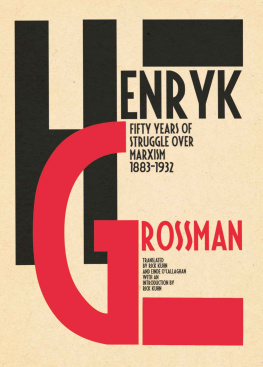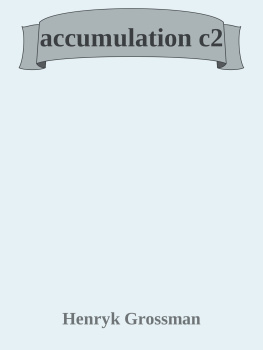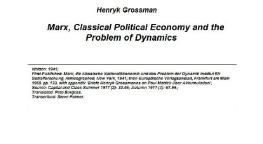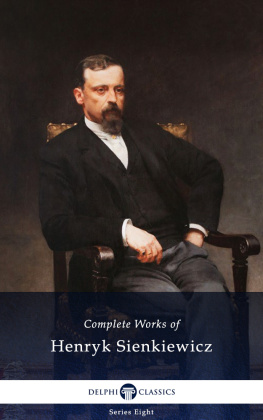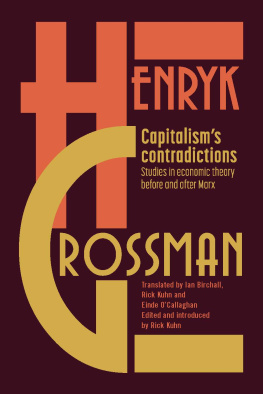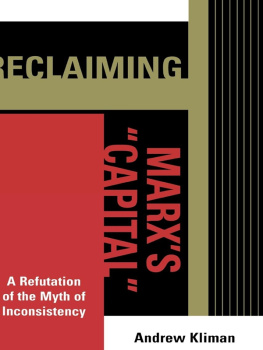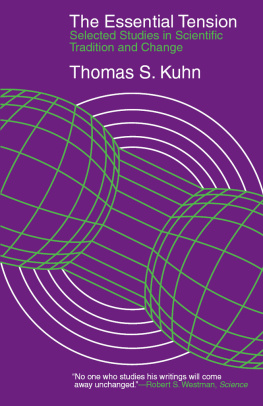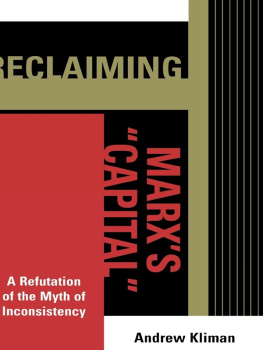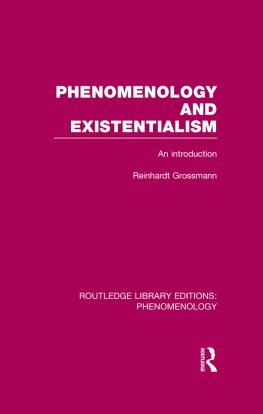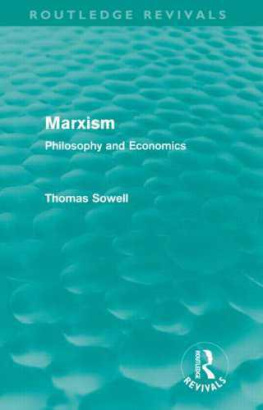Fifty years of struggle over Marxism 18831932
Translated from German by Rick Kuhn and Einde OCallaghan
Introduced and edited by Rick Kuhn
A Marxist Left Review publication
Copyright Rick Kuhn 2014
Socialist Alternative
Trades Hall
54 Victoria St
Carlton South
VIC 3053
Contents
Rick Kuhn is the author, amongst other works, of Labors Conflict: Big Business, Workers and the Politics of Class , (with Tom Bramble, 2010) and a biographical study of Henryk Grossman, Henryk Grossman and the recovery of Marxism (2007), which won the prestigious Deutscher Memorial Prize in 2007. An adjunct reader in Sociology at the Australian National University, Rick is a long term political activist and member of Socialist Alternative.
Introduction to Fifty years of struggle over Marxism, 18831932
Rick Kuhn
Henryk Grossmans pioneering account of the history of Marxist theory between Marxs death and the early 1930s was written from a revolutionary Marxist standpoint. It explains the major controversies and creativity of Marxist analysis in the context of capitalist development and the history of the labour movement. His overview concludes with an implicit reply to critics of his own important contributions to Marxist economic theory and the understanding of Marxs method in Capital . Grossmans account was published in a peculiar place: a German dictionary of economics, in three hefty volumes, which was a standard reference work. It was the final section, in which he referred to himself in the third person, on The further development of Marxism to the present, of the entry Socialist ideas and theories (I Socialism and Communism). The essay also appeared as an offprint, Fifty years of struggle over Marxism, 18831932 .
Only Karl Korschs article Marxism and philosophy, which provided a shorter overview of the history of Marxism from Hegel to 1923, is an obvious immediate predecessor of Grossmans study, in which it was very briefly but favourably mentioned. There were earlier discussions of the history of socialist ideas and Marxist organisations but none examined the development of Marxist thought, especially after Marxs death, more than superficially. Other works, the most outstanding of which was Vladimir Ilyich Lenins State and revolution , had dealt with particular controversies within Marxism.
Grossman was well-placed to conduct a survey of the history of Marxist theory. He was born in 1881 in Krakw and became active in the Polish Social Democratic Party (PPSD) of Galicia, the Polish province of the Austro-Hungarian Empire, and the Jewish workers movement, around the turn of the century. As the class struggle in the Austria-Hungarian empire heated up, paralleling developments across the border in tsarist Russia that led to the revolution of 19056, Grossman was a founding leader, the secretary and theoretician of the Jewish Social Democratic Party of Galicia, established on May Day 1905. He was also involved in smuggling literature for Rosa Luxemburgs organisation, the Social Democracy of the Kingdom of Poland and Lithuania, into Russian-occupied Poland. Despite the hostility of the PPSD and the federal Austrian Social Democratic Party, the JSDP grew rapidly, organised many Jewish workers into trade unions for the first time, mobilised them in struggles against their exploitation as workers and oppression as (mainly Yiddish-speaking) Jews, undertook extensive educational and propaganda work and published a weekly newspaper. The JSDP led Jews in strikes and street protests alongside workers of other nationalities, particularly in the struggle for universal male suffrage. During this period Grossman was still a university student.
As the level of class conflict subsided in 1907, Grossman completed his first university degree, married and left Krakw to continue his studies in Vienna. There he wrote a large study of Austrias trade policy in Galicia during the 18 th century, from a tacitly Marxist perspective, that punctured myths about the provinces development cherished by Polish nationalists. During World War I he fought on the Russian front and was later a researcher in the War Ministry in Vienna. The racist policies of the first government of the rump Austrian republic, headed by the Social Democrat Karl Renner, deemed Grossman, like large numbers of other Galician Jews who moved to Vienna during the war, a Pole. He was therefore unable to take up a post that had been lined up in the Austrian Central Statistical Commission.
Grossman moved to Warsaw, where he was in charge of independent Polands first population census, at the Polish Central Statistical Office. In 1920, he joined the Communist Workers Party of Poland. He was appointed to a professorial chair at the Free University of Poland and was involved in front organisations of the illegal Communist Party. After five arrests and prison stretches of up to eight months for his political activity, Grossman left for a job at the Institute for Social Research in Frankfurt am Main. Germany was less repressive than Poland and the Institute, under Carl Grnberg, was an excellent place to work. It was associated with the University of Frankfurt am Main but funded by an endowment from the radical son of a very wealthy businessman to conduct Marxist research.
Grossman remained a revolutionary Marxist; he was a fellow traveller of the German Communist Party and the Communist International. But his situation as an exile and his position in the Institute for Social Research offered him freedom to conduct research and write unconstrained by a party line or the restrictions of a normal academic post. So he was insulated from the Stalinisation of the German Communist Party and the International, completed by the end of the 1920s, that accompanied the defeat of the revolution in Russia and the emergence of a bureaucratic state capitalist ruling class. Grossmans best known work was written in Frankfurt. His Marxist economic study, The Law of Accumulation and Breakdown of the Capitalist System: Being also a Theory of Crises , contradicted the explanation of crises that became the Stalinist orthodoxy and earned him the criticism of Stalins lieutenant in economic theory, Yen Varga. This book and an essay also spelt out Grossmans earlier account of Marxs method of successive approximation in Capital . When Grnberg was incapacitated by a stroke, Grossman took over his tasks for Elsters dictionary, writing biographical entries on prominent socialists, including Vladimir Ilyich Lenin, socialist and communist parties, Bolshevism, the Second and Third Internationals, anarchism and Christian socialism, as well as his essay on Marxism after Marx.
In his survey, Grossman condensed a huge literature by highlighting key works and arguments, focusing particularly on issues in Marxist economics and of socialist strategy. He started by noting that the appreciation of Capital s full significance was very limited for decades. Engels was only able to publish the second and third volumes, which he put together from Marxs drafts and notes, in 1885 and 1894. A version of Marxs manuscripts on the history and critique of economic theories was eventually published by Karl Kautsky, as the three volumes of Theories of surplus value , between 1905 and 1910. The relative immaturity of the workers movement, its resources and organisations, along with repression, also made it difficult to grasp the significance of Marxs study of capitalisms anatomy.
After the Anti-Socialist Law lapsed in 1890 and the Social Democratic Party of Germany, the largest socialist organisation in the world, could operate openly, the influence and sophistication of Marxist analysis grew rapidly. But it was challenged by the rise of revisionism. This current argued that Marxs theories and core ideas, including his explanation of economic crises and capitalisms tendency to break down and his advocacy of the revolutionary destruction of the capitalist state, needed to be modified or abandoned altogether because they were dated or wrong. The most prominent revisionist was Eduard Bernstein, with Karl Kautsky Engels joint literary executor. The Russian/Ukrainian economist Mikhail Tugan-Baranovsky, who like Bernstein believed that the fundamental basis for socialism was a moral rather than a materialist critique of capitalism and rejected Marxs labour theory of value in favour of mainstream economic concepts , provided an influential justification for the assertion that there were no economic reasons why capitalism could not continue forever.

